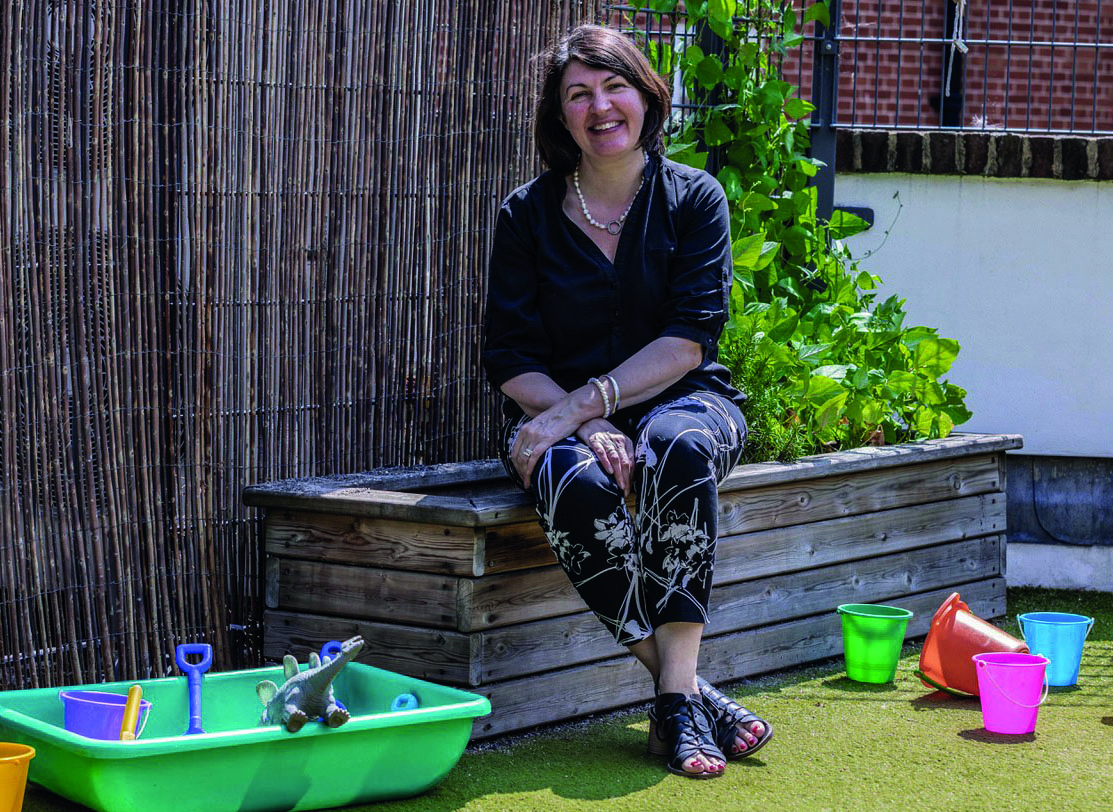
Ruth Swailes, schools adviser

‘I think the devil will be in the detail with Labour’s Early Education policy.
‘I welcome their pledge to raise the status of those working in the sector and I would like to see more ministers discussing “Early Education” rather than “childcare” to this end. Investment in the sector is vital.
'The pledge to convert classrooms in schools needs to be handled carefully. There’s more to this than simply repurposing a room. The adults involved need to understand how young children learn and that the needs of young children are very different from those in school.
'Investment in training for those working with children for those overseeing the transformation of these classrooms (leadership teams, governors, trusts etc) is vital if they’re to get it right.
‘I’d like to see Labour withdrawing the previous government’s proposal to reform accreditation for level 3 practitioners. We raise the status of the sector by making the process of accreditation sufficiently rigorous and challenging, not removing external accreditation.
‘Finally, I think the proposal to focus on early maths and literacy needs to be developmentally appropriate, not “top down” I’m hoping that the incoming government will listen to a wide range of voices in the sector, both in PVI and schools. I think there’s much to be gained by working together. I also hope that some new voices are heard and that they are experienced in working with under fours!’
‘I’m hopeful that by working together we can provide children with the very best start in life, and that once again we’ll have an early education system that is respected around the world.’
June O'Sullivan, chief executive of London Early Years Foundation (LEYF)

‘As a new Labour government is now in office, we look forward to seeing their plan for childcare and early education come into fruition.
‘While it’s encouraging that the Labour Party considers EYCC to be part of their wider plan in helping improve the prosperity of the country, not least by enabling 3/4 of a million more parents to re-enter the labour market, for Early Childhood Education and Care to be ‘best in class’, then the funding and provision needs to be adequate.
'This would ensure all children, especially those from poorer disadvantaged backgrounds and those with Special Education Needs and Disabilities (SEND), can access nurseries which provide high-quality care and education.
‘For too long, and across many previous governments, this has been blatantly ignored.
‘What’s more, we need the reassurance that there will be support for staff working in EYCC so they are recognised for the skills and important work they are doing.'
Catherine McLeod, chief executive of Dingley’s Promise 
‘We are looking forward to working with the new government on securing inclusion for children with SEND in the early years, at a time when there are less places for them than ever before.
‘We have been impressed in conversations by their understanding of the importance of ensuring every child can access their early years entitlements and the new education secretary Bridget Phillipson has emphasised how important the Bell Review will be in outlining the steps the new government will be taking around early years SEND.
‘We hope this will include delinking of Disability Access Funding from Disability Living Allowance to take pressure off families and release funding quickly so settings can welcome children with SEND.
‘We also hope to see mandatory inclusion training for all early years professionals, and ringfencing of the high needs block to support children with high needs in the early years.
‘Our young children with SEND need the change that the new government is promising, and we will support them in any way that we can to achieve that.’
Courteney Donaldson, managing director – childcare & education, Christie & Co. 
‘Very shortly, we’re likely to see Bridget Phillipson - who has served as the shadow secretary of state for education since 2021 - be appointed as the new education minister. At the Labour Party conference in Autumn 2023, Bridget made it clear that the Labour Party would work tirelessly to end profiteering across the children’s social care sector.
‘Labour has pledged over 3,000 new nursery classes across England to open up access to childcare hours for families, with spare school classrooms to be converted into high-quality spaces for nurseries. While this could increase capacity, in a typical school classroom, it is not necessarily an appropriate space for a nursery-aged child – inadequate toilet facilities, access to direct age-appropriate outdoor access, sleep areas, etc.
‘Equally, it is of the utmost importance that services are not duplicated. It remains to be seen how the intended creation of new provisions will work in practice. Also, given the commitment that Labour has made regarding the removal of VAT breaks for private schools, it is to be expected that there may well be a significant increase in demand for places from pupils transitioning from independent schools thus, where these unused classrooms are set to be repurposed, such space may no longer remain available.
‘Governments over the past 20 to 25 years have failed to acknowledge the importance of early childhood education – how it benefits children, working parents, and those in education or training, nor the forward-looking benefits and economic prospects for our country as a whole. So, Labour’s pledge to ‘support staff working in Childcare & Education so they are recognised for the important work…’ is vital. There hasn’t been any detail on how they will do this yet.
‘Labour also pledged in its manifesto to commit to the “enhanced entitlements” the Government has offered. Further clarity is needed on whether they will commit to increasing the rates in line with inflation in the future, something that historically has not happened.
‘One final point that is important for owners to bear in mind, is the potential for changes to Capital Gains Tax in the future.
‘While Labour has pledged not to increase Corporation Tax, Income Tax, National Insurance or VAT, they have not explicitly ruled out increasing the rate at which capital gains are taxed, and it would not be unreasonable to suggest this could come into focus either in their first Autumn Statement or, more likely, at next year’s Spring Budget.’









